17 Early Signs of Dog Dementia That Are Easy to Miss
Dogs are like family. They’re always there, wagging their tails when we come home, curling up next to us when we’re feeling down, and somehow managing to make every single day better. But as they get older, things start to change. They move a little slower, sleep a little more, and maybe aren’t quite as playful as they used to be. That’s normal. But what’s not so normal? When those changes start affecting the way they think, act, and navigate the world. That could be a sign of Canine Cognitive Dysfunction (CCD), better known as dog dementia.
The tricky part is that the early signs of CCD can be easy to miss. It doesn’t happen overnight, and at first, it just seems like “old age” creeping in. But knowing what to look for can make all the difference. Here are some early signs of dog dementia that often slip under the radar.
Getting Lost in Familiar Places
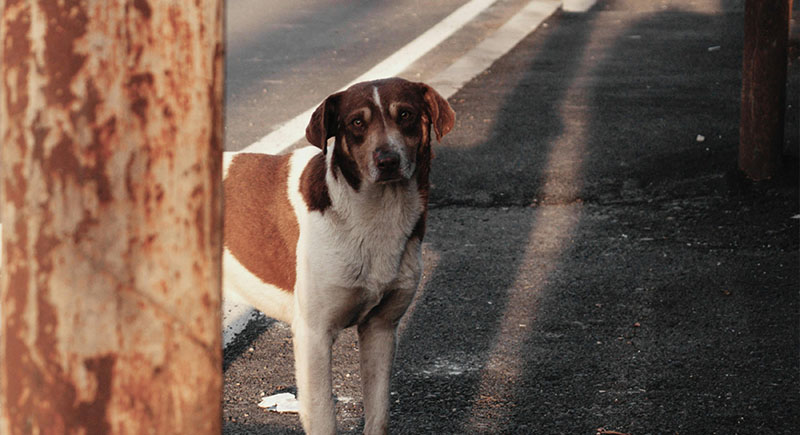
Credit: pexels
Ever walked into a room and completely forgotten why? Dogs can experience that, too. A dog with early dementia might pause in the middle of the kitchen like they suddenly forgot what they were doing. Some will wander into a corner and just stand there, unsure of how to back out. You might even catch them pacing through rooms they’ve lived in for years as if they’re lost in their own home.
Acting Differently Around You
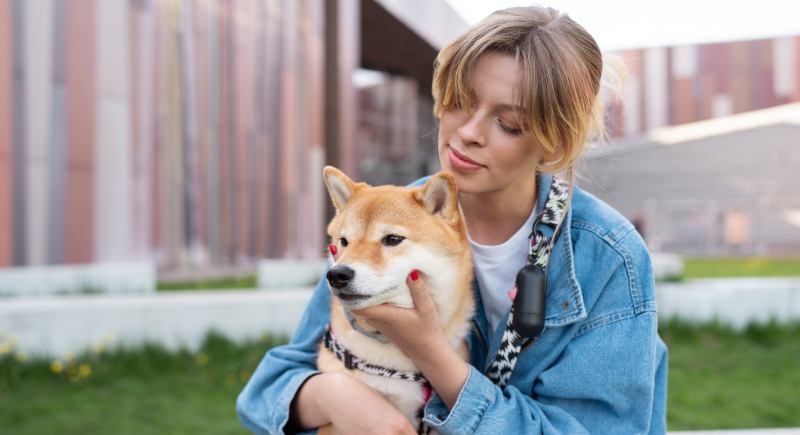
Credit: freepik
Something feels off. Maybe your dog, who used to love snuggling on the couch, now prefers to be alone. Or maybe the opposite happens—they suddenly won’t leave your side and whine if you’re out of sight for even a second. Dogs with cognitive decline can either withdraw from their loved ones or develop clingy, anxious behavior.
Sleeping at the Wrong Times

Credit: freepik
A good nap is one thing, but if your dog starts snoozing all day and then pacing around at night like they’re on security duty, something’s up. Dementia can mess with their internal clock, flipping their sleep-wake cycle. If your pup is restless at night, whining or wandering from room to room while the rest of the house sleeps, it’s more than just “getting older.”
Forgetting That They’re Housebroken

Credit: freepik
Accidents happen. But when a dog that’s been house-trained for years suddenly starts peeing indoors, it could mean that their brain isn’t processing signals like it used to. Some dogs simply forget to ask to go outside, while others walk to the door, stand there for a second, and then relieve themselves inside like they forgot why they got up in the first place.
Losing Interest in Their Favorite Things

Credit: freepik
Dogs live for their routines. If your pup used to get excited for walks but now just watches you grab the leash with zero enthusiasm, this is a sure fire sign of CCD. Toys, treats, car rides—things that once made their tail go wild—may not seem to matter anymore. This means their brain isn’t registering excitement the way it used to.
Pacing or Seeming Restless
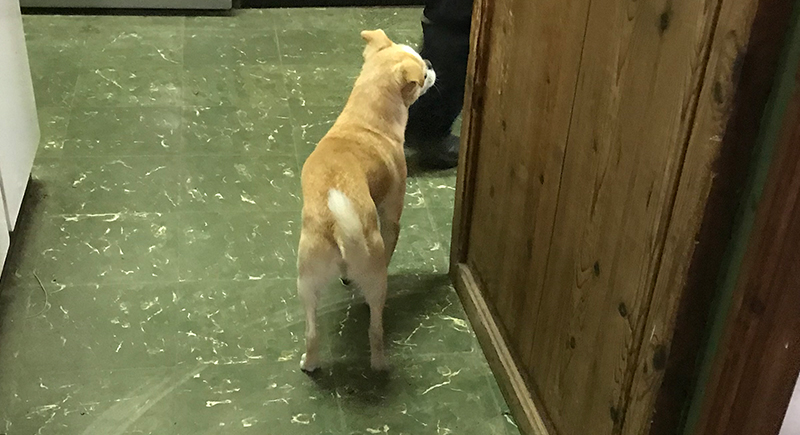
Credit: iStockphoto
Does your dog suddenly seem like they don’t know what to do with themselves? They might pace from room to room, circling the same spots repeatedly, or appear constantly unsettled. This kind of aimless wandering signals confusion–a sign of CCD. They might not remember what they were doing or feel lost even in their own home.
Doing the Same Thing Over and Over

Credit: pexels
We all have our habits, but when a dog starts licking the same spot for hours, barking at nothing, or circling the same table over and over, it’s not just a quirk. Dementia can cause repetitive, compulsive behaviors that don’t seem to have a reason.
Struggling with Basic Commands

Credit: pexels
“Sit.” Silence. “Come here.” Nothing. If your dog suddenly acts like they don’t know the words they’ve been responding to for years, it’s likely because their brain struggling to connect the dots. It’s not that they don’t want to respond to commands, they genuinely don’t understand it anymore.
Staring Off into Space
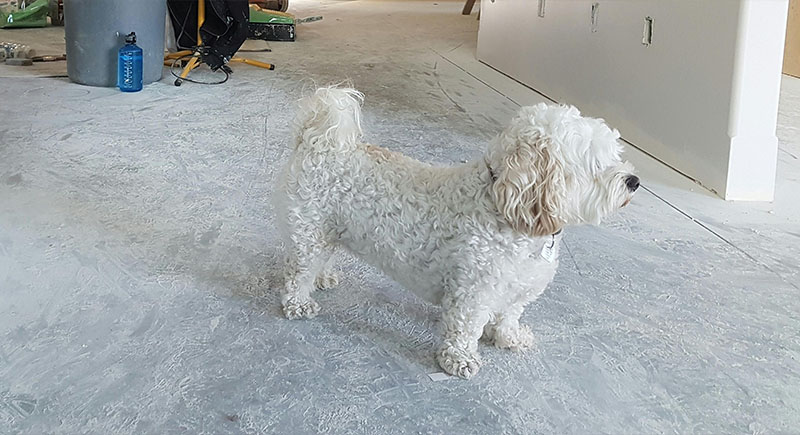
Credit: pexels
Ever catch your dog just… standing there? Not looking at anything in particular, just staring at the wall, the floor, or out into the distance as if they’ve forgotten what they were doing? This kind of zoning out can be a sign of cognitive dysfunction, almost like a momentary brain freeze.
Getting Stuck in Weird Places
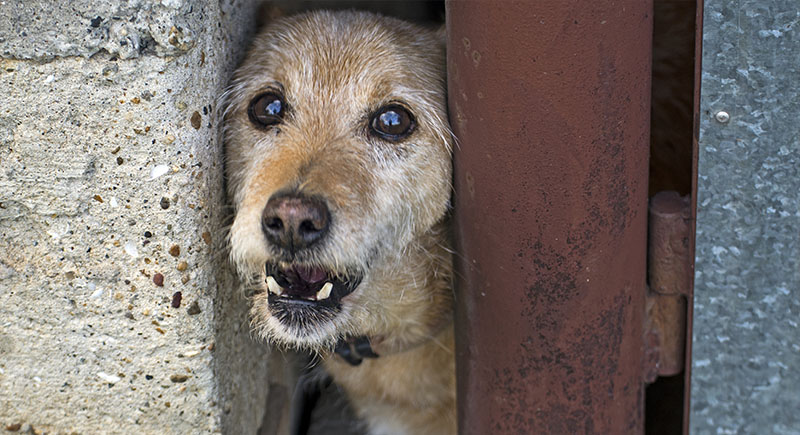
Credit: iStockphoto
Dogs are usually great at maneuvering through tight spaces, but a pup with dementia might squeeze behind the couch and then panic because they don’t know how to get out. Some will walk right into a corner and stand there, waiting for someone to help them.
Forgetting to Eat or Drink
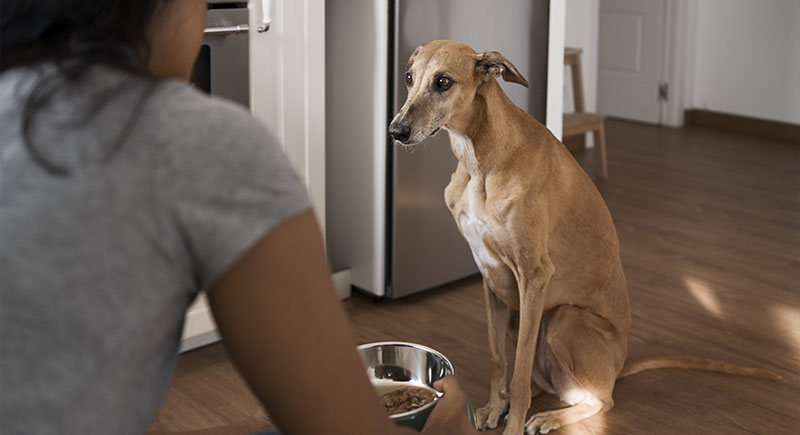
Credit: freepik
Skipping a meal here and there isn’t a big deal, but when a dog that usually gobbles up their food starts ignoring it—or even forgetting it’s there—it’s time to ask why. Some dogs with dementia will stare at their water bowl, seemingly unsure of what to do, while others just lose interest in food altogether.
Barking More—Or at Nothing
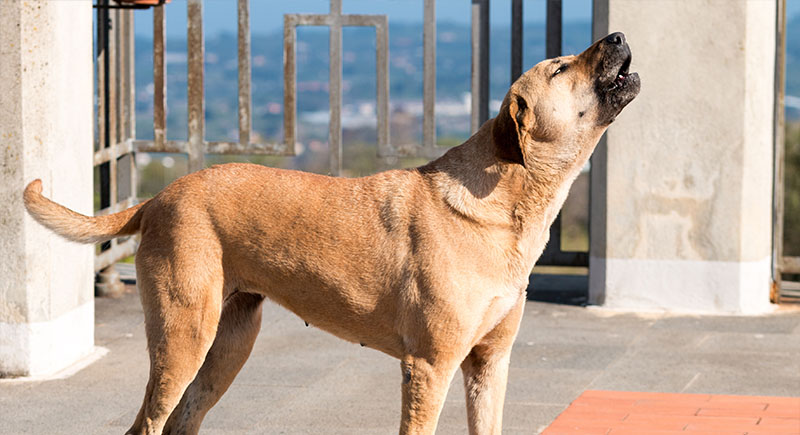
Credit: iStockphoto
If your dog is barking at nothing—or worse, standing in the middle of the room howling—this could be a sign of cognitive decline. Many dogs with dementia vocalize more than usual, sometimes out of confusion, frustration, or simple disorientation. They may bark at familiar people as if they don’t recognize them.
Getting Startled by Everyday Sounds

Credit: iStockphoto
A dog that never flinched at the vacuum cleaner suddenly jumps when you open a drawer? That’s not just nerves—it’s dementia messing with their perception of sound. Some dogs with CCD become more sensitive to noise and react in ways they never did before. Others might not respond at all, even when you call their name.
Ignoring Grooming or Over-Grooming
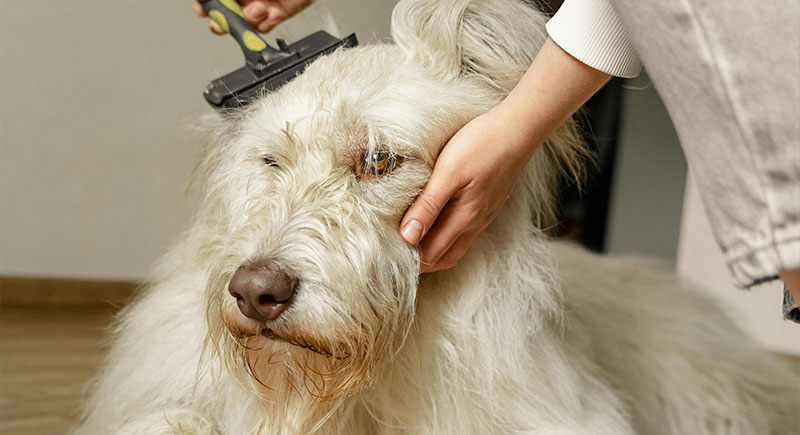
Credit: pexels
A dog that’s always been neat and clean might start looking messy, not because they’re rolling in the dirt but because they’ve stopped grooming themselves. On the flip side, some dogs do the exact opposite, licking the same spot obsessively until they develop sores. Either way, it’s a sign their brain isn’t processing things the way it used to.
Struggling with Stairs and Doorways
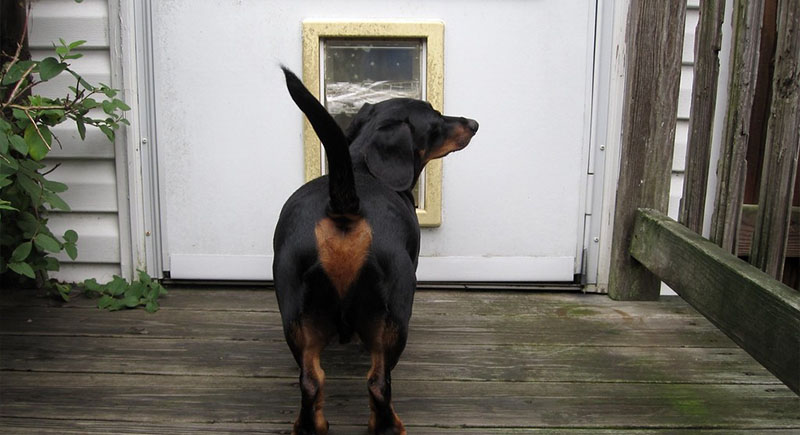
Credit: flickr
Something as simple as walking through a door can suddenly become a challenge. You might see your dog standing at the entrance of a room, hesitating like they’re unsure what to do. Some dogs will pause at the top of the stairs as if they forgot how to go down. If they seem confused by obstacles they once handled with ease, cognitive decline could be the culprit.
Sudden Changes in Social Behavior With Other Pets
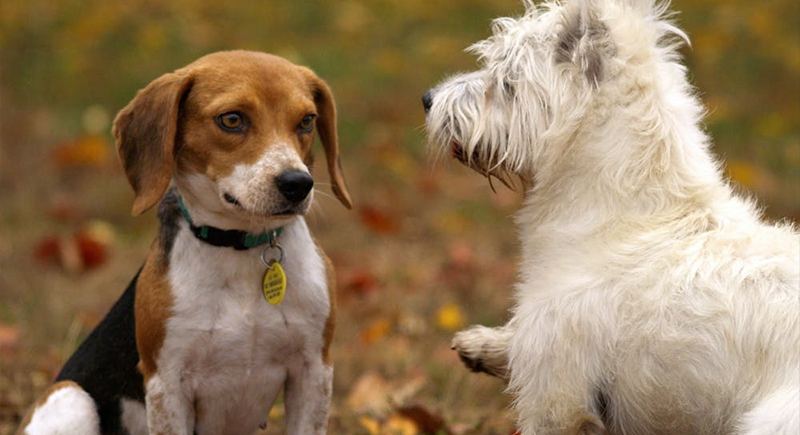
Credit: pexels
Sometimes a dog that always played gently with the other pets in the house suddenly seems unsure around them. They may avoid familiar companions, act startled during everyday interactions, or grow impatient during routine play. These shifts often appear subtle at first, but can signal early cognitive confusion affecting how they read social cues.
New Fears of Objects They Were Once Comfortable With

Credit: pexels
A dog that used to trot past the vacuum or hop in the car without hesitation may suddenly act nervous around those same everyday things. They might stare, freeze, or back away like they’re seeing them for the first time. These unexpected fears often reveal the brain’s struggle to process familiar sights.